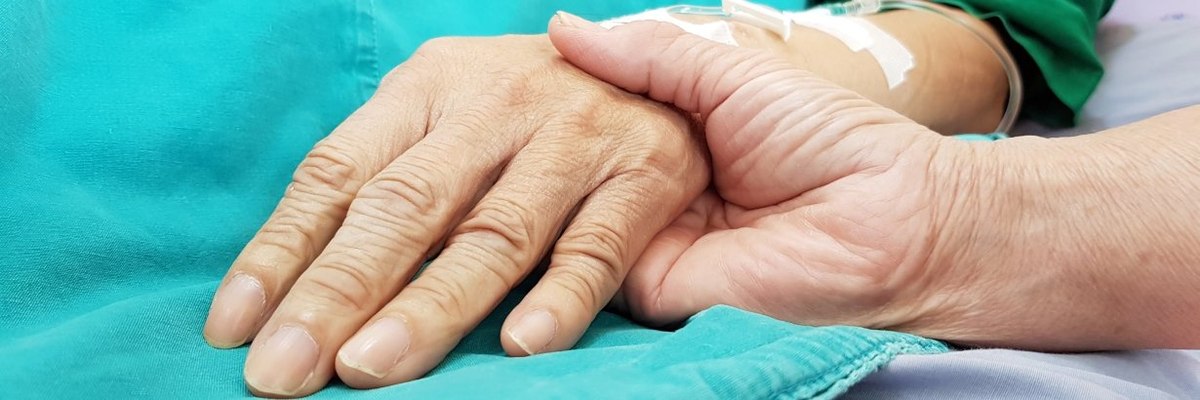For very good reasons the nation has become preoccupied with the state of the National Health Service. What could possibly be more important than our health? To which some might say: the way we end our lives or the lives of our loved ones if their suffering becomes intolerable. In this country it is a crime to help someone end their life. Should that continue to be the case?
The House of Commons health and social care committee has begun an inquiry into whether changes should be made to the laws governing assisted dying and assisted suicide. It has produced a consultation paper summarising the existing law which makes clear that, although suicide and attempted suicide are not crimes, it is illegal for a person “to encourage or assist the suicide of another person. Euthanasia (healthcare professionals administering lethal drugs) is also illegal”. The committee wants to learn what we, the public, think about this and whether we would support a change in the law. It has produced a consultation paper which summarises the basis of the present law and is now trying to find out whether we ‘broadly agree” with it or “broadly disagree”.
Simple enough, one might think. But there’s nothing simple about assisted suicide. If ever there was an issue that gets to the very heart of our humanity, it is this. At the most basic level it is, indeed, profoundly simple. We either accept that no human has the right to help end the life of another human or we accept that we have a moral duty to end the suffering of another in certain extreme circumstances.
The Commons committee has, inevitably, been criticised for the way in which it is approaching its enquiry. Lord Brown of Eaton-under-Heywood is a crossbench peer, a former justice of the Supreme Court, and one of those critics. He believes that the committee has got it “badly wrong” because it has failed to recognise what is being asked for by those who want the law to be changed. They are not, he says, demanding a wholesale rejection of the existing law but rather its “narrowly circumscribed modification.”
In an article for The Times he wrote: “Their case is quite simply that, subject to certain precisely specified conditions and safeguards, terminally ill patients in the last six months of their expected lives should be able to request a doctor’s assistance to accelerate their death. It is this that is being sought by Dignity in Dying and other such campaign groups and has been the subject of successive private members’ bills successfully promoted in the House of Lords.”
What worries Lord Brown and many who share his view is that if most of us tell the committee that we “broadly disagree” with the existing law it will be taken to mean that we are in favour of encouraging and assisting prospective suicides and, indeed, euthanasia. Therefore, he says, the committee is asking the wrong question. The right question is whether there are “any circumstances in which the law should permit a terminally ill patient to seek, and a doctor then to provide, assistance in accelerating that patient’s death?”
If we answer yes to that question, he says, “it will plainly then be necessary to discuss and decide in what circumstances and subject to precisely what conditions such assistance should be lawful.”
But even this would be a step too far for those who oppose any form of assisted dying. One of the leading campaigners against it, Baroness Findlay, argues that even the term “assisted dying” is a euphemism for assisting suicide and, ultimately, euthanasia. Others claim that in countries which have legalised euthanasia or physician-assisted suicide there have been sharp increases in the number of people who have been helped to die because, for instance, they suffer from some depressive illness. That’s in spite of safeguards which make it clear that doctors should help someone die only if that person has no more than six months to live and is suffering terribly. Some doctors say it can often be very difficult to estimate how long a person has to live.
Professor Kevin Yuill, the chief executive of Humanists Against Assisted Suicide and Euthanasia, asks: “If we define assisted suicide as medicine for unbearable suffering … how can we deny it to anyone who is suffering? Is it possible to keep safeguards in place when access has been widened in every jurisdiction where it has been legalised? Is it right to direct some towards suicide and others towards suicide prevention? We can respond with compassion in rare cases where assisting a death is appropriate. But we should not remove the moral imperative to prevent suicide embodied in the 1961 Suicide Act. One need not be Christian to believe in the commandment “thou shalt not kill”.
Others argue that the key element in this highly charged debate is personal choice. If suicide is no longer a criminal offence why should we make it a crime to help somebody who is desperate to put an end to their suffering?
Sarah Wootton, the chief executive of Dignity in Dying, says campaigners like Baroness Findlay are wrong to claim that evidence from overseas suggests assisted dying inevitably leads to form of euthanasia: “The truth is there has been a shift towards giving dying people the right to decide how and when they die, simply because without that choice some are forced to suffer or to take matters into their own hands. We are, in several UK jurisdictions, on the cusp of a change in the law. While those with personal objections to assisted dying will no doubt try to hold back the tide, there are many more who recognise that giving dying people choice and dignity is right.”
Many, of course, will argue that this is not one of those clearcut debates about right and wrong. They will point to their personal experiences of loved ones who are suffering with a terminal illness and simply want to end their suffering.
I have a close friend whose wife, a nurse in her early fifties, was diagnosed with terminal cancer after an exploratory operation and given three months to live. She was told by her doctors that chemotherapy would probably extend that by a couple of months, but she decided she wanted to spend the rest of her time living as close to a “normal” life as possible. When she left the hospital she was handed a bottle of diamorphine and told she could take as much as she needed if the pain became intolerable. The implication was clear. If she wanted to end her suffering they had given her the means to do so. In fact, she was eventually admitted to a wonderful hospice and died a peaceful death with the minimum of pain.
I offer that sad story not as hard evidence for one side of this debate or the other. It is one of those infinitely complex issues where our individual experiences may influence us far more than statistics or intellectual or even spiritual argument.
But if you are one of those whose opinions are sought by our legislators how will you respond? Do you want to change the law on assisted dying or keep it as it stands?
Do let us know.
Picture: Getty











